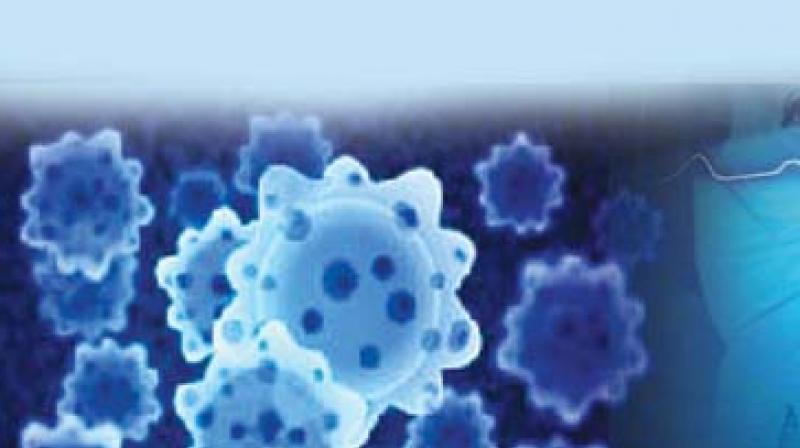Hyderabad: H1N1 has made India its home, experts call for curbing it

Hyderabad: It is not just human beings who are travelling from one corner of the globe to another. Viruses too are making swift movements from one continent to another.
Viruses, which affect tourists and business travellers are found to move piggyback with them to different continents. The H1N1 flu first started in the US and Mexico, and then there was a scare in the South East Asian countries and then India. Since then, H1N1 has made India its home and has also got used to the climatic conditions of the region.
Dr Ashok Kumar, a senior general physician, said, “Cases of H1N1 have also been seen in the summers which show that the virus has adapted to the Indian climate. In 2017, cases were seen before the winter season in Maharashtra, Gujarat and Telangana.
But after the winter set in, there have not been any new cases as the virus was mutating. The new strain will have to be checked in the winter of 2018 to understand its structure and virulence.” While the cases are close to nil in Telangana, an alert has been sounded by the Indian Medical Association.
Dr K. K. Aggarwal, a senior member of IMA, said, “The only good news is that existing medicines like Tamiflu still work on patients and complications have been avoided.”
With effectiveness of the vaccine said to be only 10 per cent for H3N2, doctors said that they are not sure if they can recommend the expect in very severe cases. A senior public health official said on condition of anonymity, “We do not have the kits to identify H3N2, hence if it makes it to our shores it will be very difficult to identify it. Currently, the mechanism we have can only identify H1N1 which is considered more aggressive.”
With flu not taken very seriously as a disease, experts say that people must realise the value of dealing with the condition from very early stages. Dr G. Srinvas, a senior general physician, said, “When flu conditions like high fever and headaches are observed, people must not go to work, keep themselves confined to homes and take rest.
They can opt for medication if the fever persists. The viruses are self-limiting. But it has been seen that due to exertion of the normal body, little rest and not enough water, secondary diseases start to develop.”
Experts say that those suffering from flu must avoid public places as they spread the virus to others. It is very important to maintain personal hygiene in terms of washing hands regularly and maintaining cough etiquettes. Cough droplets spread the virus and whoever touches affected surfaces transfers it to others around them.

